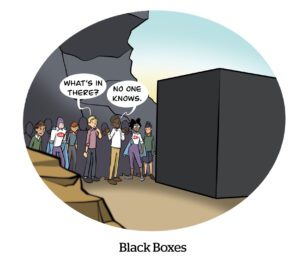Here’s today’s AdExchanger.com news round-up… Want it by email? Sign up here.
MR-Seize The Opportunity, More Like
Criteo is now MRC accredited for display impressions and click-based metrics for on-site and in-app retail media placements. The MRC review also included Criteo’s methods for detecting general invalid traffic.
Brian Gleason, Criteo’s CRO, says in the release that the rating is “a significant step forward in the maturation of retail media.”
And it certainly is a big win for Criteo. But it also shows how far retail media is from achieving programmatic standards of transparency.
To be fair, Criteo isn’t the first retail media company to gain MRC creds for click metrics and impressions. Instacart earned a more expansive accreditation two weeks ago, and Amazon has had it for Sponsored Products since 2022.
And it’s important to note that all of these accreditations are for on-site ad products only, when what advertisers primarily need is comfort with off-site retail media. Open web audience extensions have serious exposure to inventory quality issues.
The invalid traffic detection is good, but doesn’t solve the problem of retail media networks serving ads to real people on MFA sites or into other unsuitable placements.
A Conversion By Any Other Name
Google Analytics and Google Ads are finally speaking the same language.
The word “conversions” will no longer mean different things on each platform, Google announced in a blog post.
Previously, “conversions” in Google Analytics referred to actions that could be considered stepping stones on the way to achieving a KPI (like a video completion as a precursor to a purchase or download). Google Ads, meanwhile, uses “conversions” for campaign targeting and optimization signals, as in a successfully completed post-impression action.
Now, Google Analytics users have three labels to assign to on-site actions: “events,” “key events” and “conversions.”
“Events” refers to any action a user can take on the page. “Key events” describes actions that a publisher or advertiser wants to prioritize (i.e., what Google Analytics used to consider “conversions”). And “conversions” now uses the same definition as Google Ads.
Google Analytics users don’t have to change their legacy “conversions,” though. The system will consider them to be “key events.”
This is good news. Online advertising and measurement is confusing enough for advertisers and publishers without using different definitions for common terminology.
A Well-Optimized Fridge
The Atlantic announced that it now has more than 1 million subscribers and is profitable – a rare turnaround story in news media.
Congratulations!
But our focus here is on an unrelated Atlantic column by staff writer Yasmin Tayag decrying the insane diversity of the modern beverage aisle. Beyond the proliferation of new fizzy sugar-free sodas, a whole new universe of “functional beverages” has taken hold of supermarket and convenience store fridges. Some cans promote calmness, with magnesium and adaptogens. There are sodas for gut health, mood-shifting elixirs with cannabis or mushrooms. Still others promise shinier skin or a better immune system.
However, this whole apparent drink-based health and wellness revolution is, for the most part, a feat of marketing.
This is particularly apparent in Canada, where DTC brands are not allowed to use terms like “gut health,” “prebiotic” or even “antioxidant” in ads or on their packaging. (There is an exception if a brand’s health claim has a functional purpose, such as Vitamin C or selenium, which are dietary antioxidants.)
“Perhaps the appeal of these beverages is less about their actual effect and more about the feeling they sell,” Tayag writes, “that you can take a step toward self-optimization one sip at a time.”
But Wait, There’s More!
Snowflake is doubling down on data clean room tech as it forges deeper ties with the ad industry. [Business Insider]
The Brandtech Group has been valued at $4 billion after raising new funds. [FT]
Europe’s misguided hostility toward Meta’s “pay or okay” model. [Mobile Dev Memo]
Even without S4 Capital, Stagwell has ambitious growth plans. [Adweek]
You’re Hired!
Vidmob brings on Matt Young as CRO and promotes Erin Arnett to VP of client solutions and global brands. [release]
InfoTrust hires former Google director Roberto Ruju as VP of ad platforms. [release]
ReachTV names Bob Gruters as its first-ever president and hires Andrew Eisner as EVP of sales and partnerships. [Deadline]
Sprinklr appoints Amitabh Misra as CTO. [release]
IDG announces new leadership appointments. [release]

















